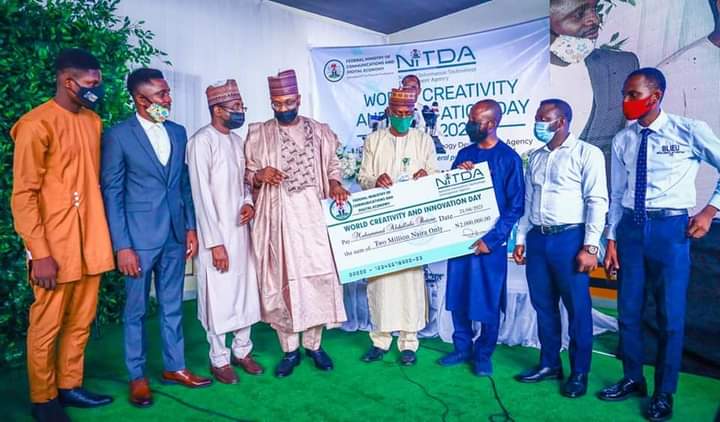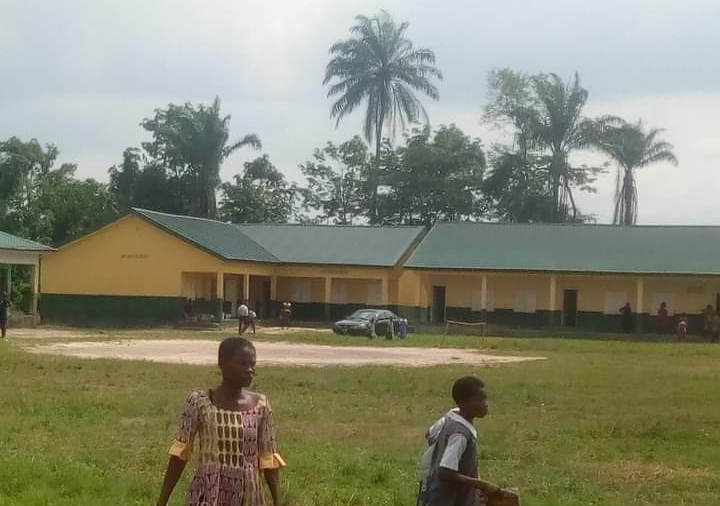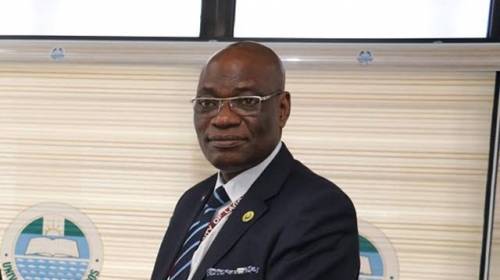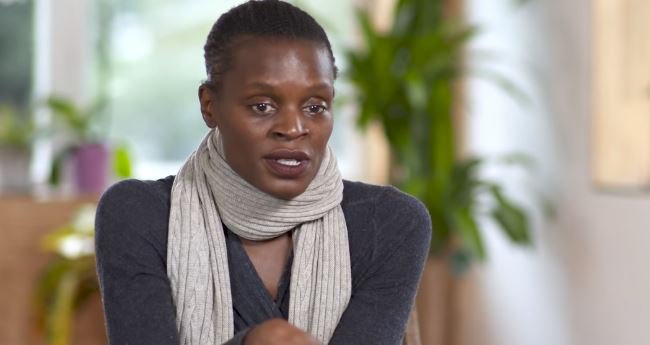The Federal Government on Wednesday in Abuja granted N10 million as seed fund to five innovators that emerged winners in the World Creativity and Innovation Day (WCID) challenge.
The five startup winners emerged among over 800 entries made for the challenge and received N2 million each.
The winners were Muhammed Bature for Schoola Limited, Jeremiah Kuro for Blieu-1 Automations Limited and Nwachinemere Emeka for Kitovu Technology Company with an app that allowed market access for farmers.
Others are Ajiboye Mayowa, Co-founder Computer Based Test Nigeria with Education Technology app that provided easy computer based testing platform for public servants, students and more at the comfort of their homes, and Izu Freeman for Capsule company.
Dr Isa Pantami, the Minister of Communications and Digital Economy, while presenting the seed funds to the winners, urged them to be consistent in their creativity, adding that the path to innovation is painstaking.
“Today we are awarding five best startups that participated among over 800 people in the innovation challenge to mark the WCID.
“The Federal Government through NITDA is giving them the sum of N2 million along with letter of commendation and they will also be part of NITDA’s Innovation and Entrepreneurship Scheme.
“We are going to monitor their progress, encourage them to be consistent and also want you to partake in critical thinking that will bring success,” he said.
The minister added that the federal government was working toward developing the National Digital Innovation and Entrepreneurship Policy that would aid innovative ideas and startups in the country.
Mr Kashifu Inuwa, the Director-General of NITDA, said that innovation was the major development force of any nation.
Inuwa explained innovation as the ability to invent and drive those inventions toward commercialisation and job creation.
“Innovations, particularly market-creating innovations have the potential to transform nations and lift them out of poverty.
“Market-creating innovation pulls infrastructure and investments that can transform the economy and create prosperity,” the NITDA boss said
He said that the telecommunications industry was the most vibrant economic sector in the continent, hence transforming societies and providing jobs to millions of citizens by creating new markets and opportunities.
Inuwa recalled that the Startup Genome, the world-leading innovation policy advisory and research firm and a survey on Nigerian Micro, Small and Medium Scale Enterprises (MSMEs), said there was about 6,500 MSMEs, some in the digital, with Lagos having about 700 digital innovation registered businesses worth over two billion dollars.
He pointed out that NITĎA had identified innovation as a critical tool for implementing the National Digital Economic Policy and Strategy.
He reiterated that the government was committed to fostering digital innovation culture among Nigerians, for youths to boost their innovative capacity, Catch Them-Young programme for kids targeted at orienting Nigerian kids to become active players in the digital technology space.
“We are recalibrating our activities to focus on strengthening the innovation ecosystem, promote the adoption of emerging technologies for sustainable development, digital job creation, and promoting Nigerian content development and adoption,” he said.
The WCID challenge organised by the National Information Technology Development Agency (NITDA) was part of activities to mark the global day usually celebrated on April 21.
The global day has as its theme; “Inspiring Creativity and Innovation in the Nigerian Digital Economy”.
The UN designated April 21 of every year as WCID to raise awareness on the role of creativity and innovation in all aspects of human development and means to achieve the Sustainable Development Goals agenda.
The WCID held concurrently with the NITDA 20th year anniversary.




